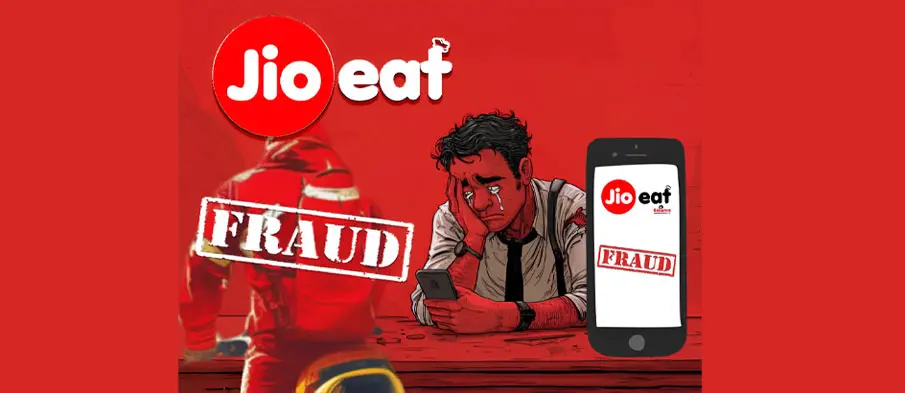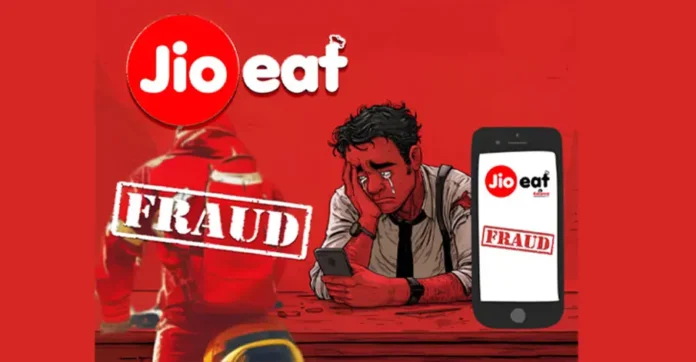
As ultra-fast food deliveries become the norm, cybercriminals are adapting just as quickly—often ahead of the curve. One such alarming example is “Jio Eat”, a fraudulent platform designed to deceive unsuspecting users under the guise of 24/7 food delivery services.
The Birth of a Digital Impostor
Claiming to operate in 15 Indian cities, “Jio Eat” presents itself as a legitimate hyperlocal food delivery service. It boasts round-the-clock delivery within a 10-km radius and lists prominent quick service restaurant (QSR) brands like Pizza Hut, Subway, Burger King, and Wow! Momo as partners.
To build trust, the fake platform has incorporated seemingly professional elements such as privacy policies, terms & conditions, and shipping information pages. It even runs ads on YouTube, raising serious questions about the oversight of online ad platforms. Meanwhile, user complaints on social media about the scam continue to pile up.
The Deceptive Tactics
The scam unfolds when a user attempts to place an order. While the order value may be small—say INR 130—the user receives an OTP for a much higher transaction. For instance, a test by Inc42 showed the OTP was linked to a payment of INR 16,119, billed to a dubious entity named “CSC E GOVER”.
This exploitative trick relies on catching users off guard and preying on their trust in OTP-based transactions.
A Growing Threat in the Digital Era
The “Jio Eat” case adds to a growing list of sophisticated online frauds surfacing in India. With deepfake technologies and phishing sites becoming more convincing, it’s getting harder for even tech-savvy users to differentiate between what’s real and what’s a scam.
Authorities have stepped up efforts to tackle digital fraud, but as this case illustrates, much more needs to be done—especially in monitoring digital ads, strengthening KYC for online payment processors, and promoting consumer awareness.





